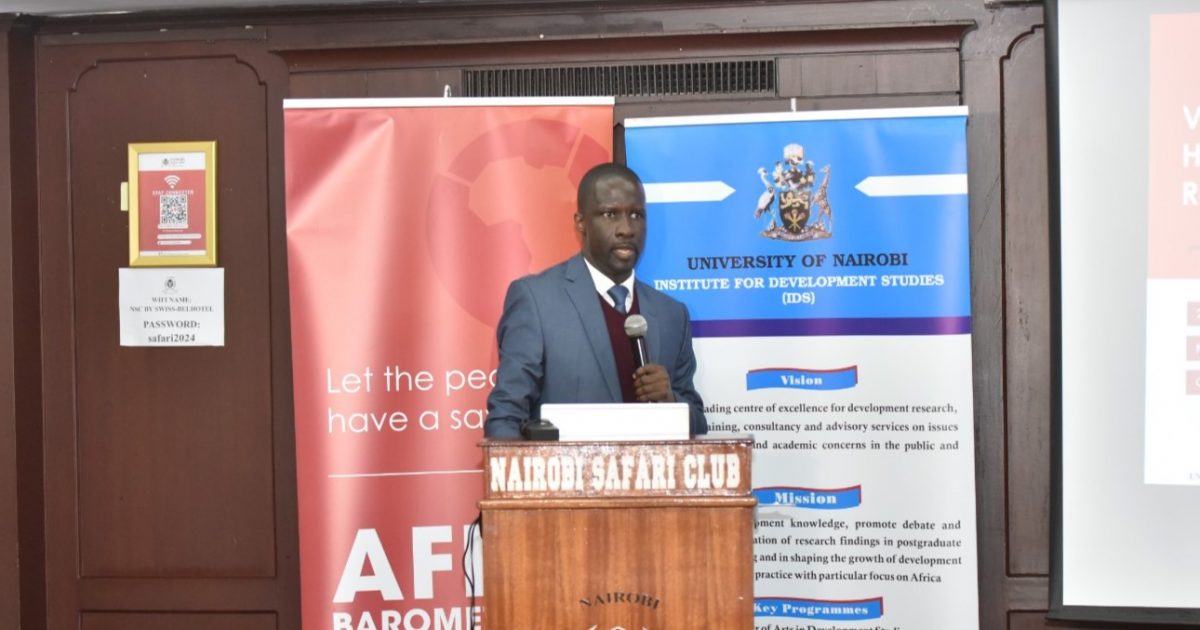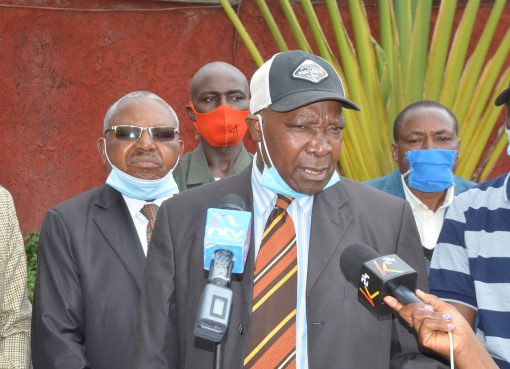By large majorities, Kenyans support greater investments in climate-resilient infrastructure, wind, and solar energy in order to respond to changing weather patterns and environmental degradation, the latest Afrobarometer survey reveals.
While presenting the survey by Afrobarometer, the Co-National Investigator, Dr. Oscar Otele of the Institute of Development Studies (IDS) at the University of Nairobi, said that a majority of Kenyans say they are familiar with the concept of climate change.
He noted that most citizens who are aware of the phenomenon blame human activities as its main cause and say urgent action is needed from the Kenyan government as well as developed countries.
“About six in 10 Kenyans (61 per cent) say they have heard of climate change,” he stated.
The survey revealed that of those who have heard of climate change, more than four-fifths (82 per cent) believe human activity is the main cause or a contributing factor, and strong majorities (72 per cent) support measures to limit climate change by the Kenyan government and rich countries (81 per cent).
83 per cent of those who have heard of climate change say that wealthy countries have an obligation to help Kenya fund its response to climate change, with 74 per cent of Kenyans saying the government should put more pressure on rich countries to provide resources to support Kenya’s response to climate change.
The survey further shows that 82 per cent of Kenyans want their government to invest in climate-resilient infrastructure that withstands the effects of floods and droughts, and 62 per cent want clean energy like solar and wind energy in response to changing weather patterns and environmental degradation.
“A slimmer majority (54 per cent) support a ban on cutting down trees for firewood or charcoal, while fewer than half (42 per cent) say the government should push for families to switch to cookstoves that use cleaner fuels such as electricity or gas,” Dr. Otele said, adding that 36 per cent want the government to promote the use of electric taxis and buses.
Dr. Otele noted that more than four in 10 citizens say they have personally adapted to changes in climate by changing the crops they plant or the food they eat, the hours they work, and their water consumption patterns.
The survey showed that in substantial numbers, 45 per cent of those who keep livestock say they have adapted to changing weather patterns through the change in their grazing patterns.
“45 per cent of those interviewed say they have reduced their water consumption, 45 per cent changed their water source, 43 per cent changed their work hours, and 42 per cent changed the crops they plant and the food they eat,” Dr. Otele said, noting that rural and poorer citizens are more likely to undertake these changes than their urban and wealthier counterparts.
Afrobarometer is a Pan-African, non-partisan survey research network that provides reliable data on African experiences and evaluations of democracy, governance, and quality of life and has completed nine survey rounds in up to 42 countries since 1999.
Around 10 surveys were launched in January 2024. Afrobarometer’s national partners conduct face-to-face interviews in the language of the respondent’s choice.
The Afrobarometer team in Kenya, led by the Institute for Development Studies at the University of Nairobi, interviewed a nationally representative sample of 2,400 adult Kenyans in April-May 2024.
Dr. Otele stated that a sample of this size yields country-level results with a margin of error of +/-2 percentage points at a 95 percent confidence level.
By Purity Mugo





